Mozambique!
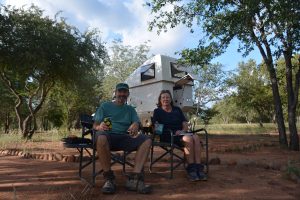
Our first night in Mozambique was in a remote corner of Limpopo National Park, itself tucked away into a forgotten corner of this fascinating country
Mozambique has to be one of the most unlikely travel destinations. Until recently racked by civil unrest and political turmoil, significantly underdeveloped, no tourism infrastructure, rampant corruption and inflation, a colonial power – Portugal – which abandoned them. It sounds like a good place to come to later. But Julie and I were keen to check out their redeveloping national parks, their long gorgeous beaches and some of their unique culture. We crossed the border from Kruger National Park in South Africa at Giriyondo, one of Mozambique’s most remote border posts, and drove straight into this new world.
The Limpopo National Park in Mozambique backs onto Kruger National Park in South Africa but has very little of the famous wildlife of its neighbour. The lawless environment this country has endured in recent decades means poaching has been a huge problem in the park and as we drove the 60 kilometres to our first night’s camp we saw only a few impalas to break the stress of driving one of the worst tracks we had seen in Africa so far.
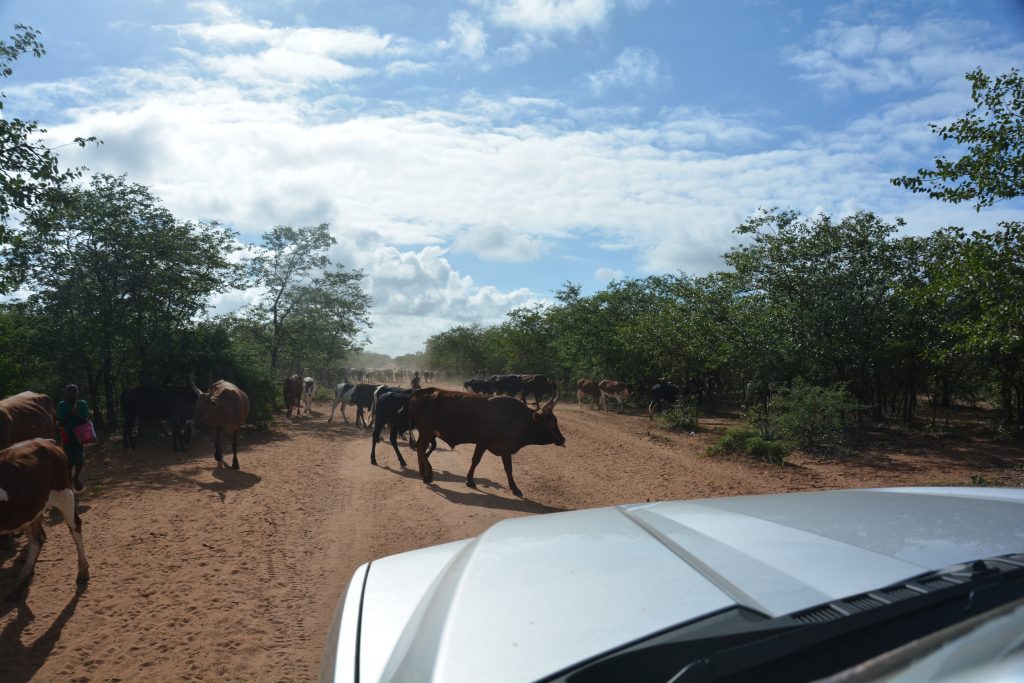
It didn’t really feel like we were in a national park – you definitely got the feeling the government had abandoned the park
Our camp the first night was overlooking the huge lake from Messingir Dam in a remote setting at the end of a narrow and tricky four wheel drive track. The campsite hadn’t been used in days (or maybe weeks!) and was a little iffy without any water or electricity but hey, we were in Mozambique!
Our original plan for Mozambique was to drive to the furthest point of Kruger National Park and cross over at the Pafuri border post deep in the tropical forest, then travel down the Limpopo River until a point where cars can drive across the river in the dry season. We rang the border post to see if the river had dropped low enough for vehicles to cross and we were told emphatically NO! We’re flexible, a new plan, hence why we crossed further south and saw a bit of the southern half of their national park.
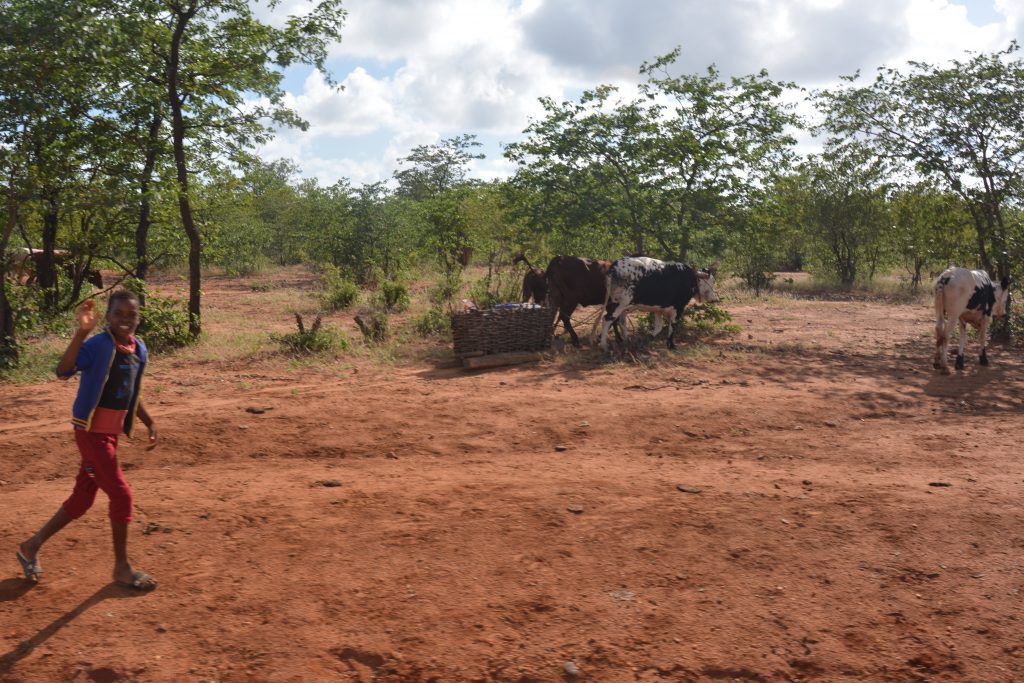
We saw cattle pulling little sleds which contained the basic needs of the boys herding them – water, some food and perhaps some shelter
Mozambique, and our next country Malawi, is also malaria country and for the first time on our trip we began taking malaria tablets before getting into the affected areas. We also bought large supplies of the local must-have mosquito repellent, promisingly called Peaceful Sleep, and kept applying it liberally. Malaria is a good thing to avoid.
We followed overgrown sandy tracks out of the Limpopo National Park and finally hit tarred roads at the frontier town of Messingir which we followed south for some hours. The roads were in terrible condition and there were a hundred cows on the road for every car. The people and communities we passed were dirt poor, living in small stick houses, dirt floors, barely a subsistence survival. Their main source of income was charcoal – they would collect the wood, prepare it in a kiln and then load it in bags for sale along the side of the road.
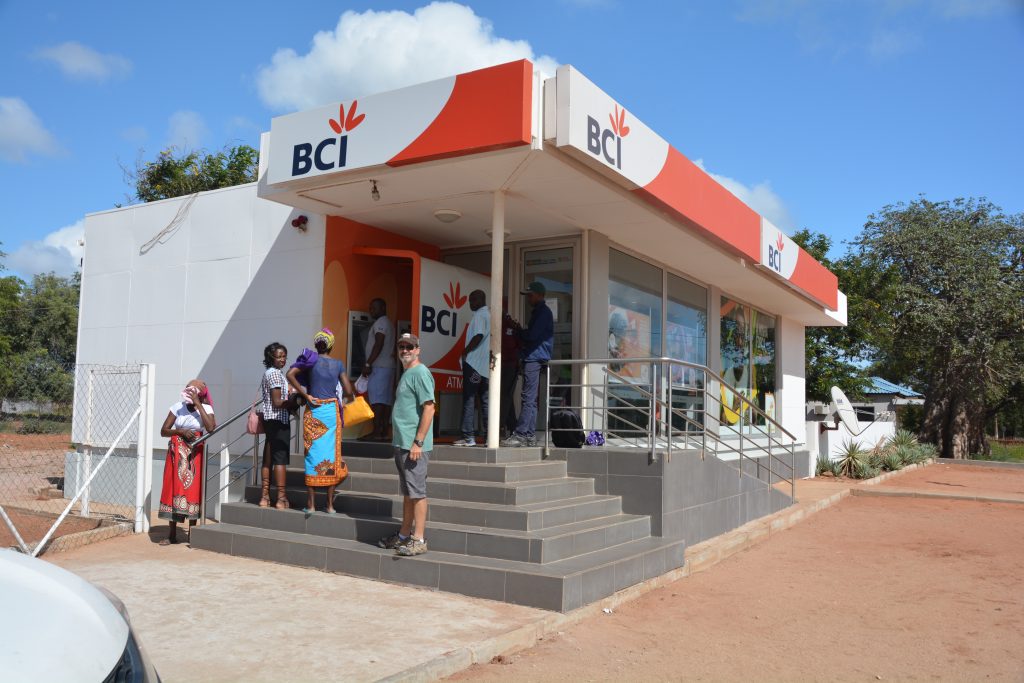
Messingir was our first town in Mozambique so I queued at the bank to get some money. Julie got in trouble from the guard for taking a photo of a bank.
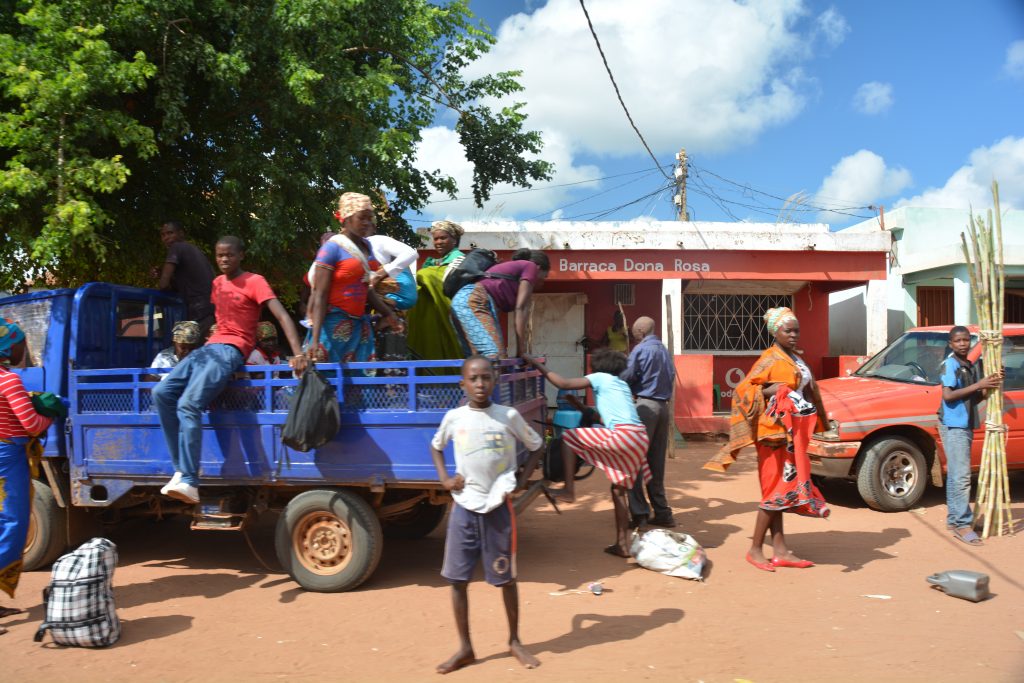
A major feature of Mozambique is transport. The people don’t own cars, motorbikes or even bicycles but many different types of vehicles act as public transport – and they are always packed
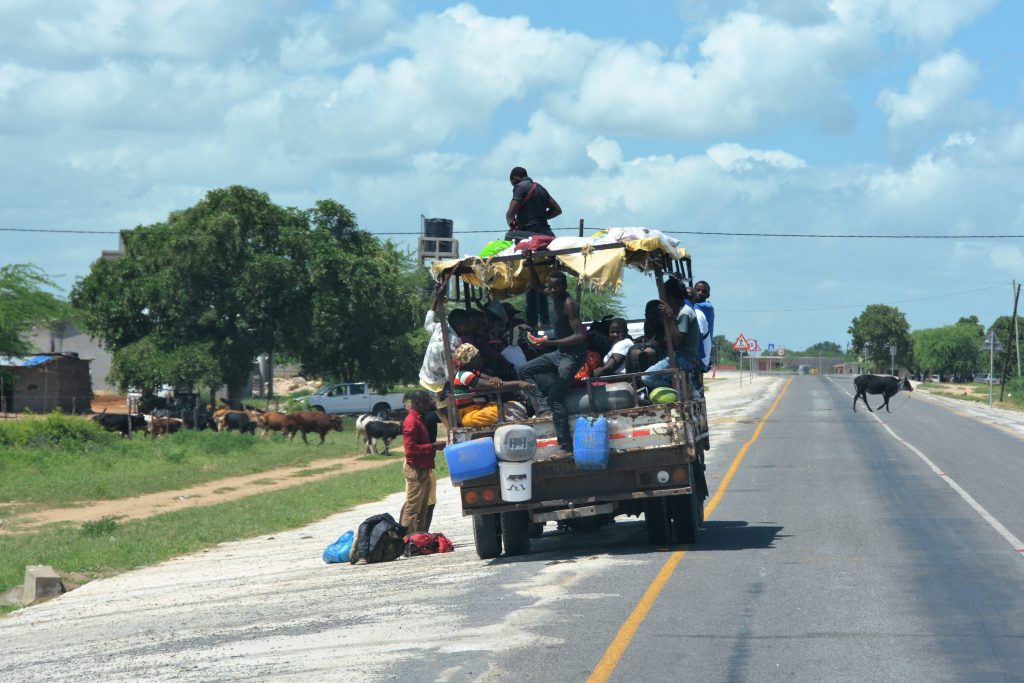
Here’s a larger truck also acting as public transport. People pile in their goods, pay a few coins and hitch a ride down the road.
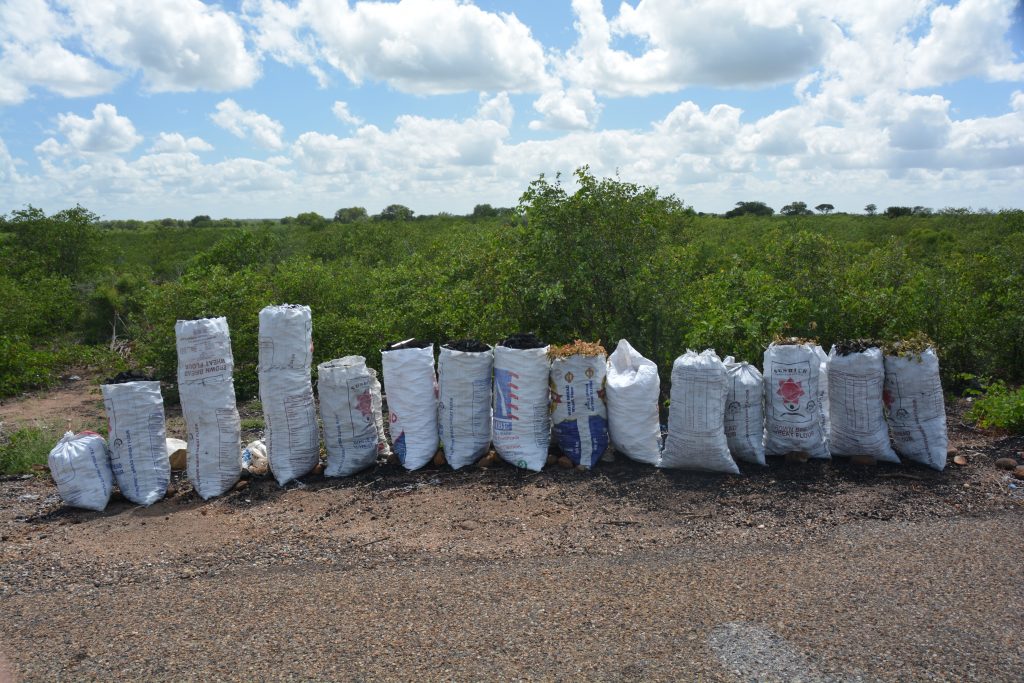
Another feature of Mozambique was the bags of charcoal for sale on the side of the road. There was almost always some charcoal for sale visible in front of us as we drove through the countryside.
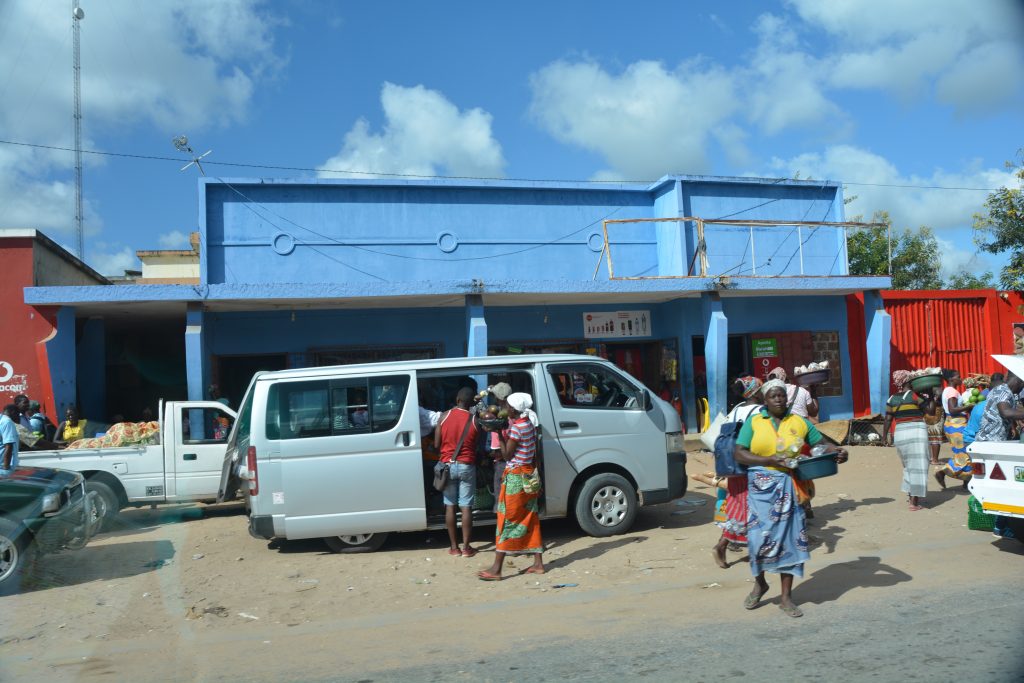
More public transport – besides some trucks these different vehicles carrying the locals around were the only traffic
Eventually we popped out on the Indian Ocean coast at the town of Xai Xai and followed the country’s N1 national highway, such as it is, to the coastal town of Chidenguele where we followed a narrow one lane sandy track and camped on the grounds of a lodge overlooking the crashing surf and long sandy beaches. Mozambique had packed a punch in one day, from the national park, through impoverished communities, across fertile agricultural plains and finally to the beaches. As per normal.
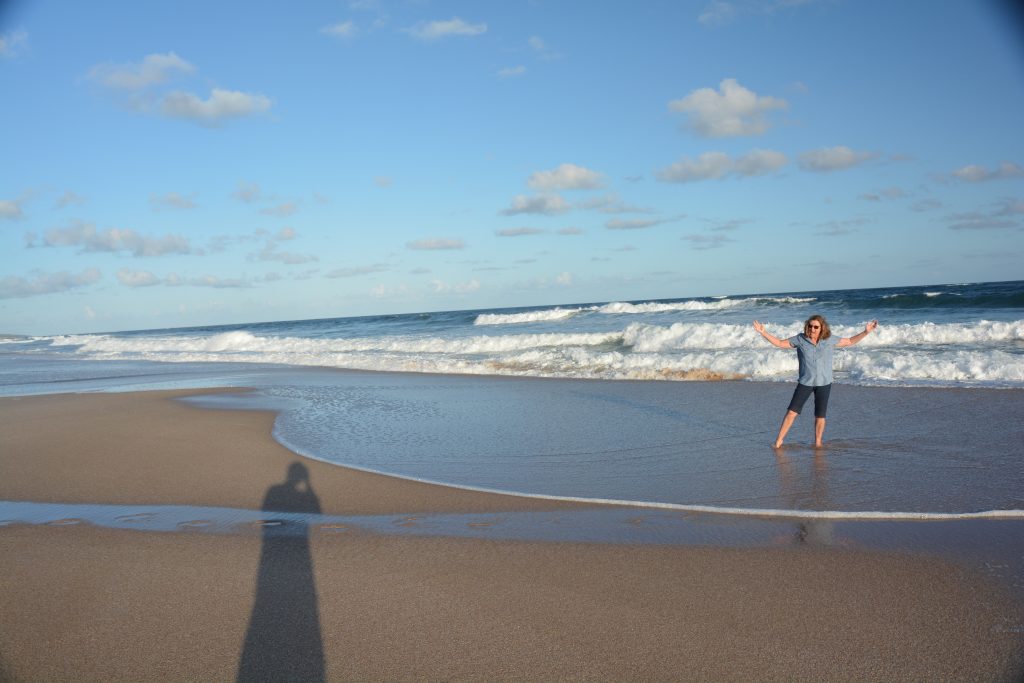
Strange but true – Julie dipping her toes in the Indian Ocean in an extraordinary day that took us from a remote national park, through the countryside down to the beaches.
We rejoined the N1 national highway and headed further north through increasingly tropical rolling hills, the trees a mix of coconut palms, African leadwood and thorn trees, a few good old Aussie gum trees and the occasional local crops of corn, bananas and cassava, all lovingly maintained by a hand hoe and a strong back. The temperature crossed 30C/85F by 8am and the people walking along the side of the road were feeling it.
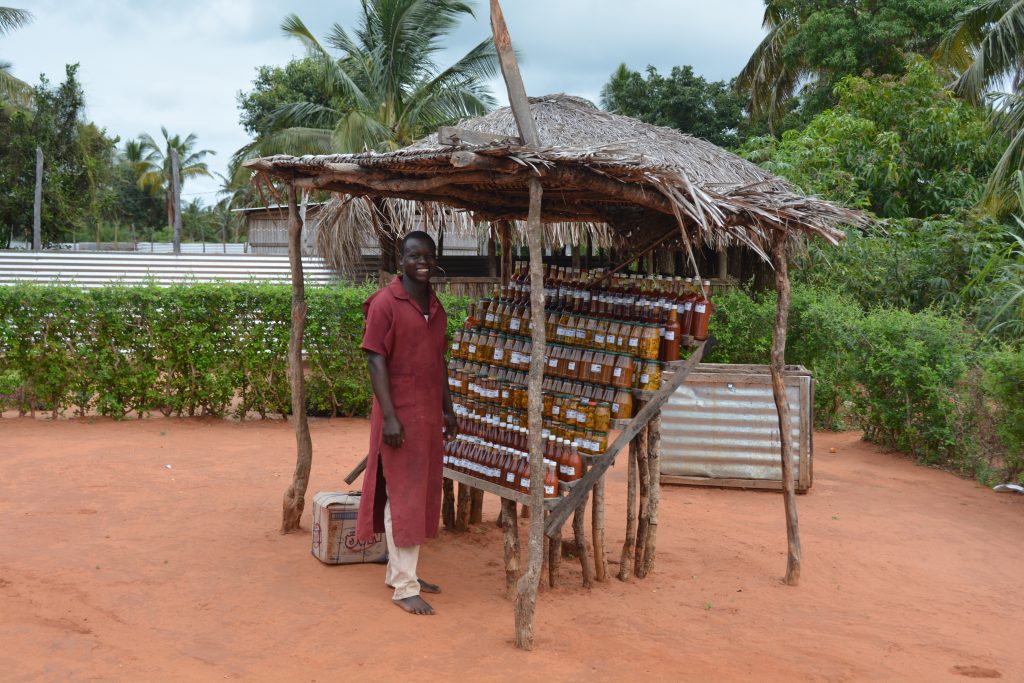
We couldn’t figure out what these roadside stalls were selling so we stopped and asked this handsome guy. It’s chili sauce, all bottled and labeled locally.
But Julie and I marvelled at these people, sometimes living in stick or tin huts, walking to work all immaculately dressed, especially the women in their bright colours and perfectly manicured hair, sometimes with a young child strapped to their back, the children off to school in their neat school uniforms, as if they lived in Palo Alto or Bondi. And the women, but never the men, would often be carrying huge loads on their head, something to sell, something they’ve bought, whatever the case may be. These people live a tough life compared to us but do it with as much style and poise as possible.
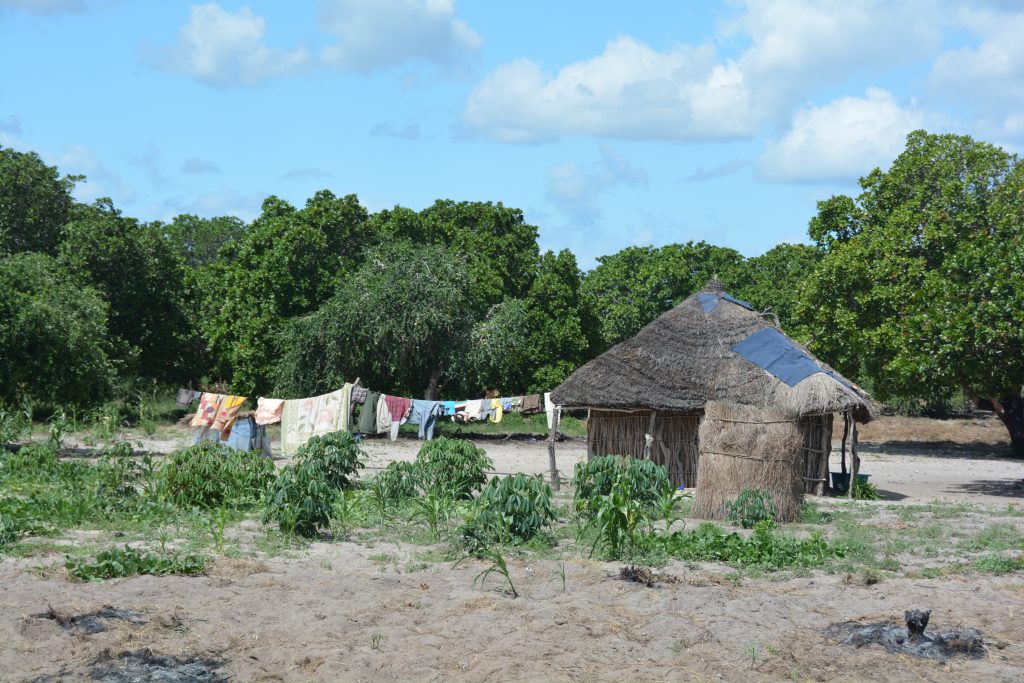
Mozambique featured very modest homes, no electricity, water from the local well, a few scraggly crops to sustain them – very tough
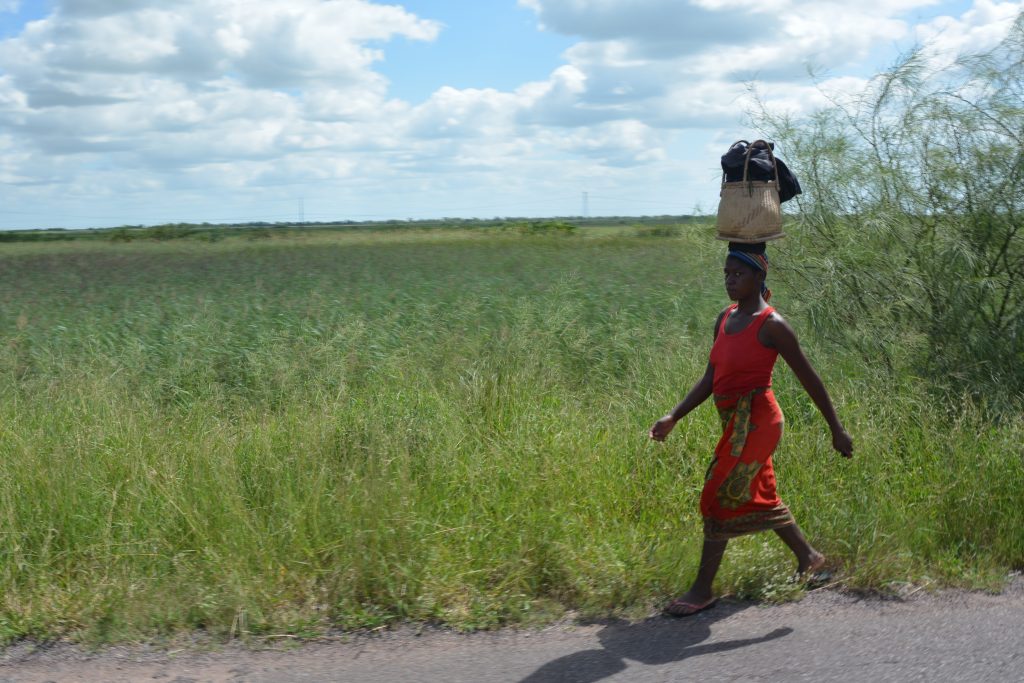
The people of Mozambique are poor but the women are beautiful – well groomed, great hair, always carrying a baby on their back and/or something on their head.
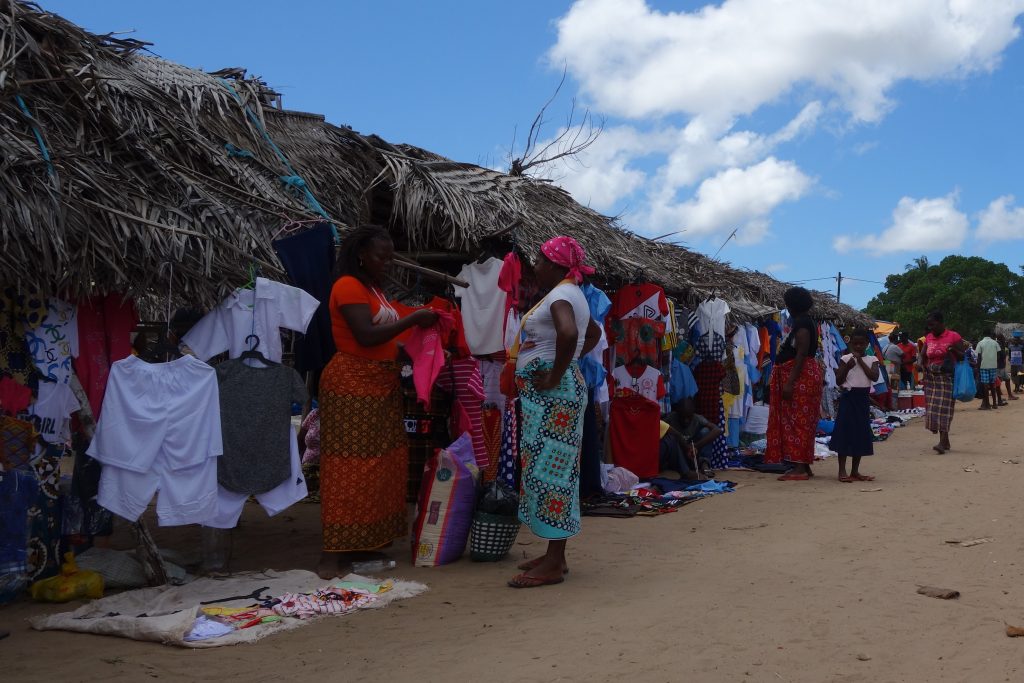
We stopped at a roadside market to explore the stalls and talk to the locals – they were very warm and friendly, if not a little confused on why we were there
The large regional town of Inhambane was once a major Portuguese colonial centre and many buildings clearly date from those pre-1980’s days. We explored the town, walked out on their long jetty, wandered through their markets and streets, getting a feel for it. And what we saw we liked, the place had rundown charm, peeling colour and rusty relics from its vibrant historical past. I even heard Julie say, “I want to live here” but we didn’t test the theory.
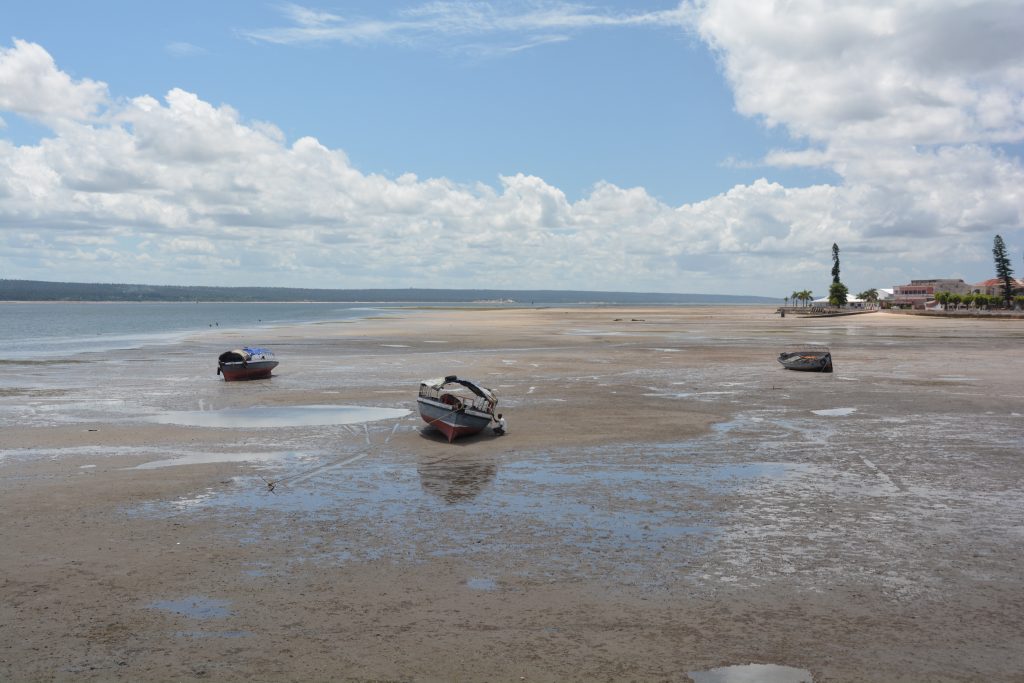
The town of Inhambane had a very long jetty for its boats – and we could see why when we arrived at low tide
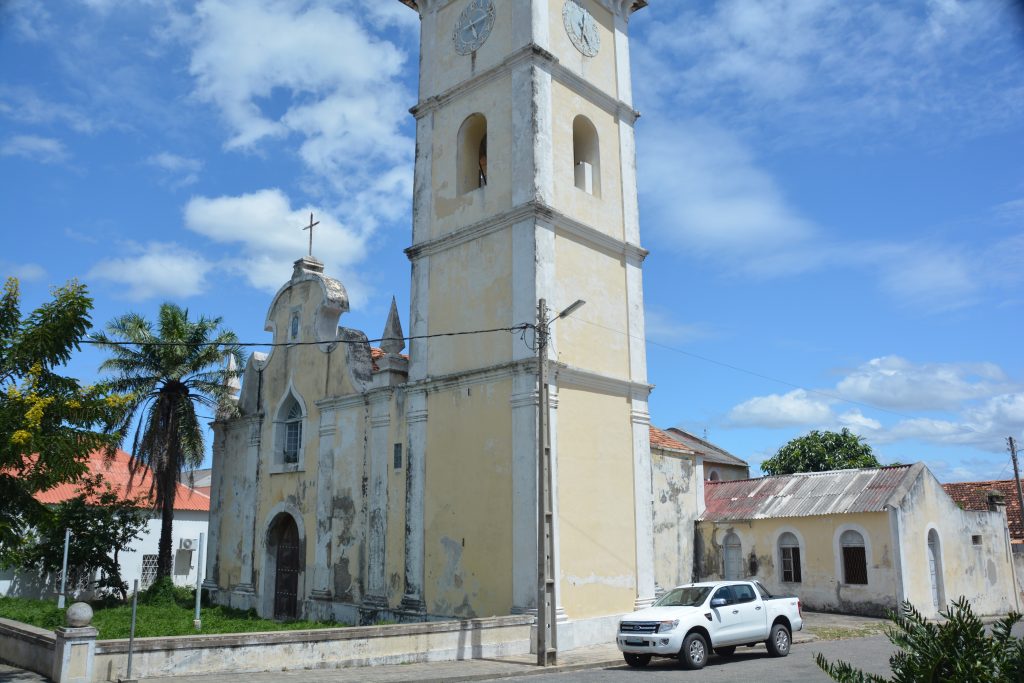
The Portuguese were here for a few centuries and left their mark in some of the buildings of this quaint colonial town
After a bit of wifi to check in with the outside world and reprovisioning of fridge and pantry we headed back to the N1 and in the town of Maxixe camped on the ocean’s shores, metres from the water and loving the cooling ocean breezes. So far we’ve found the people of Mozambique speak more English than we expected – which is good because our Portuguese is crap – and are exceptionally friendly and warm. Their history over the last 40 years has been tumultuous to say the least, and the northern parts of the country are still not safe to travel in, but our experience so far has been fantastic.
Now it was time to head north across the central remote and jungle stretches of Mozambique. We couldn’t wait to see what was up ahead.
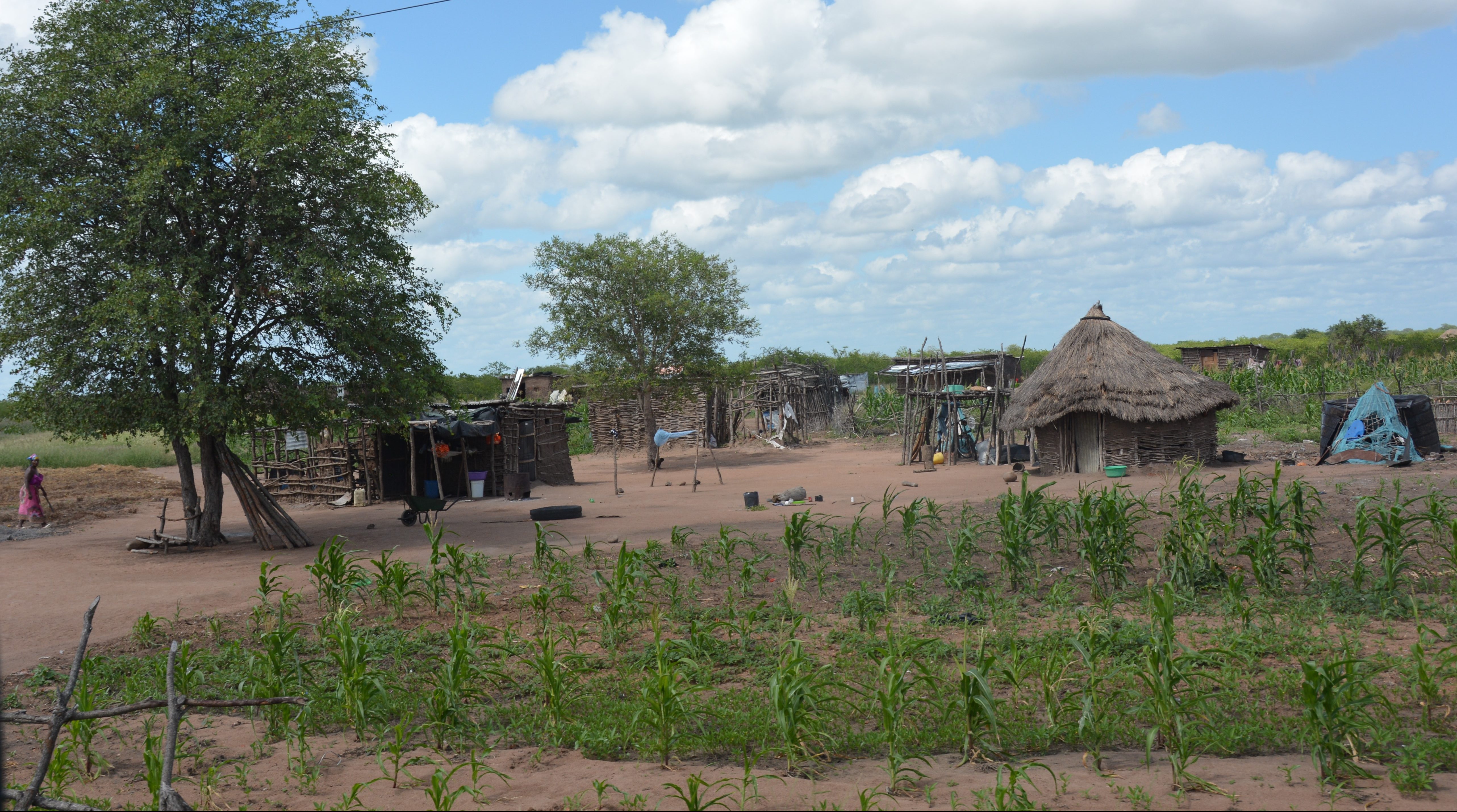
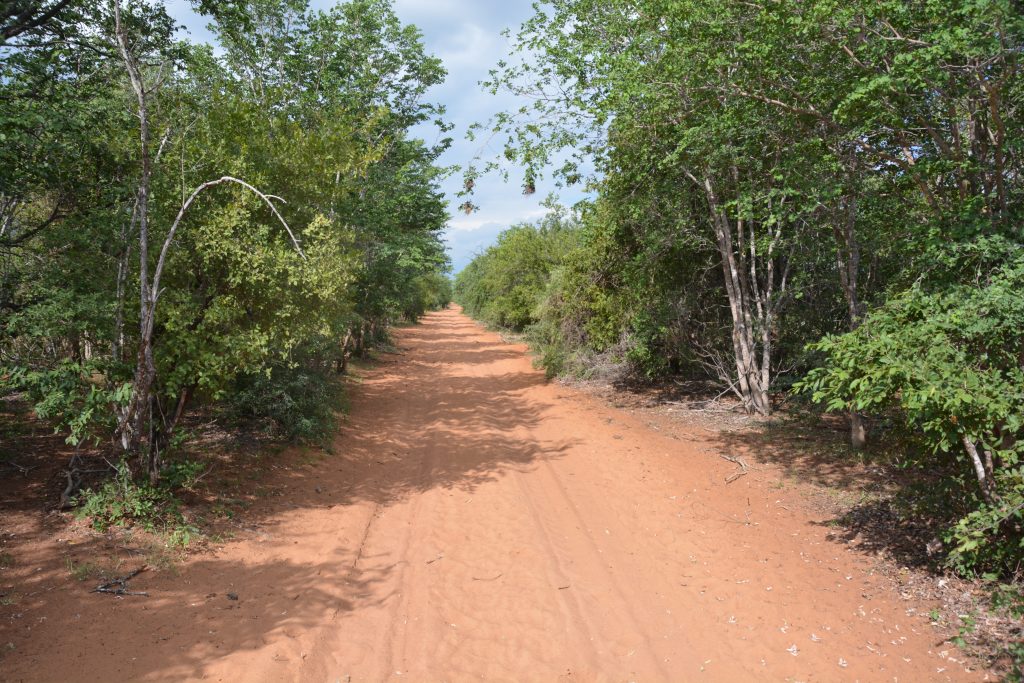
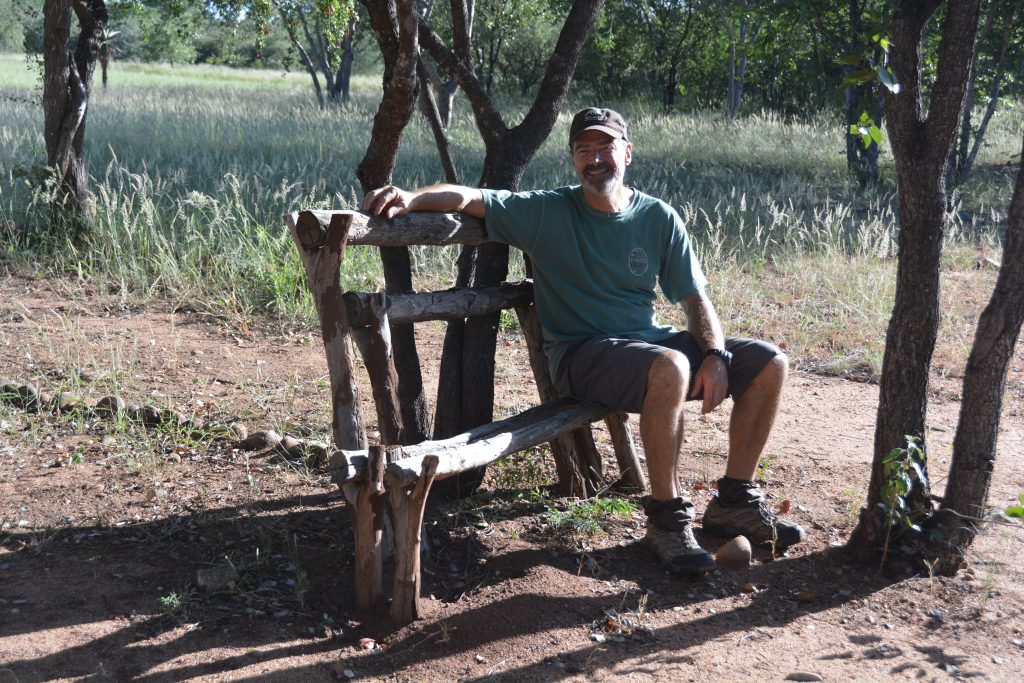
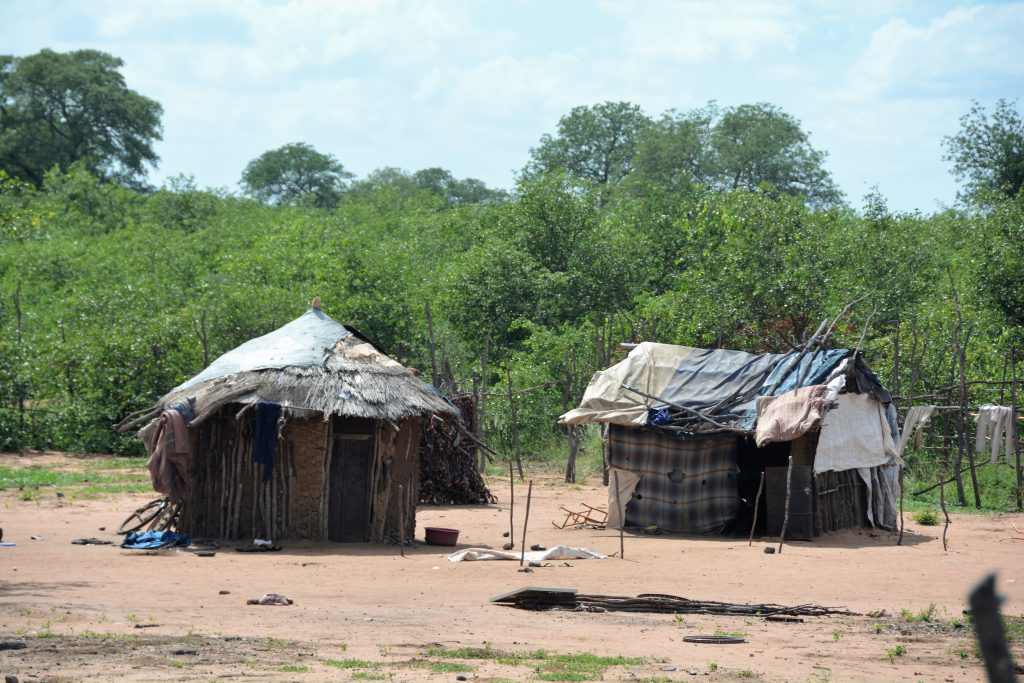
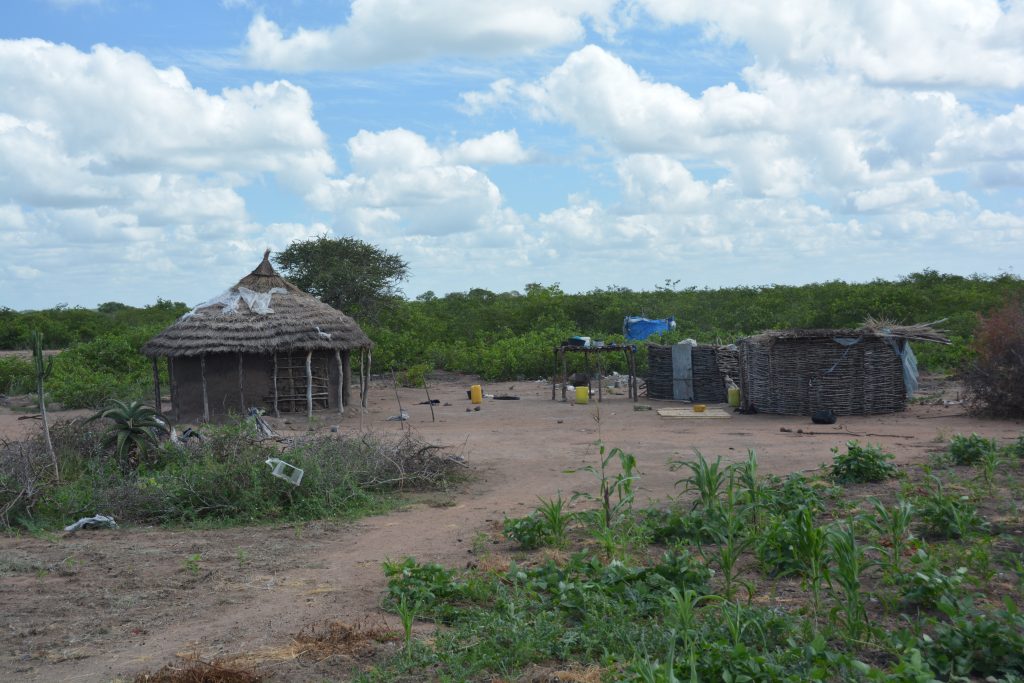
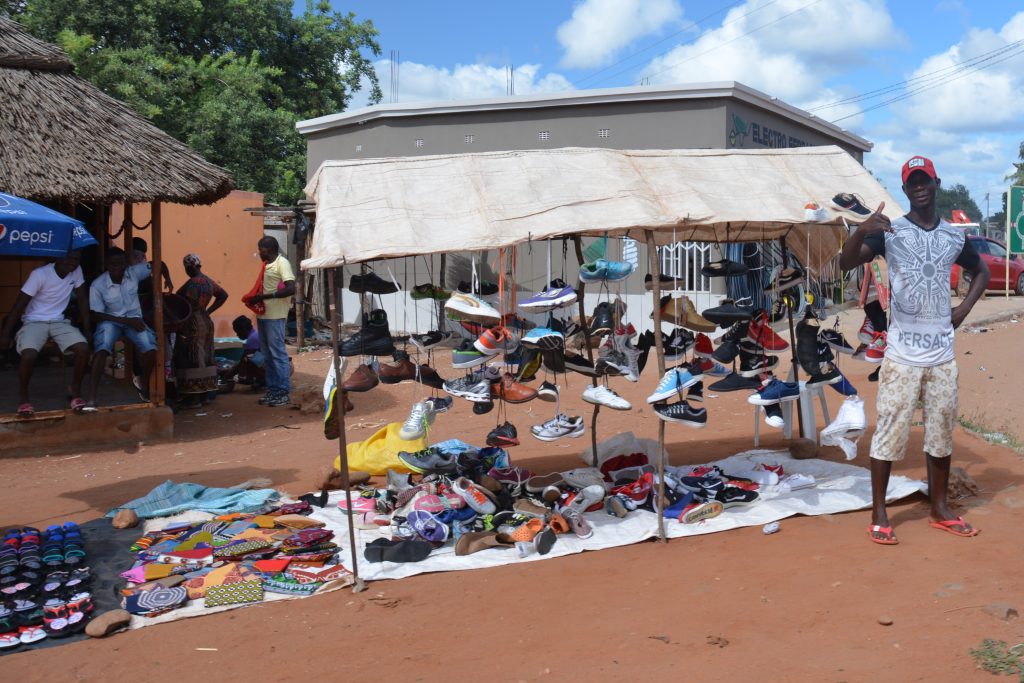
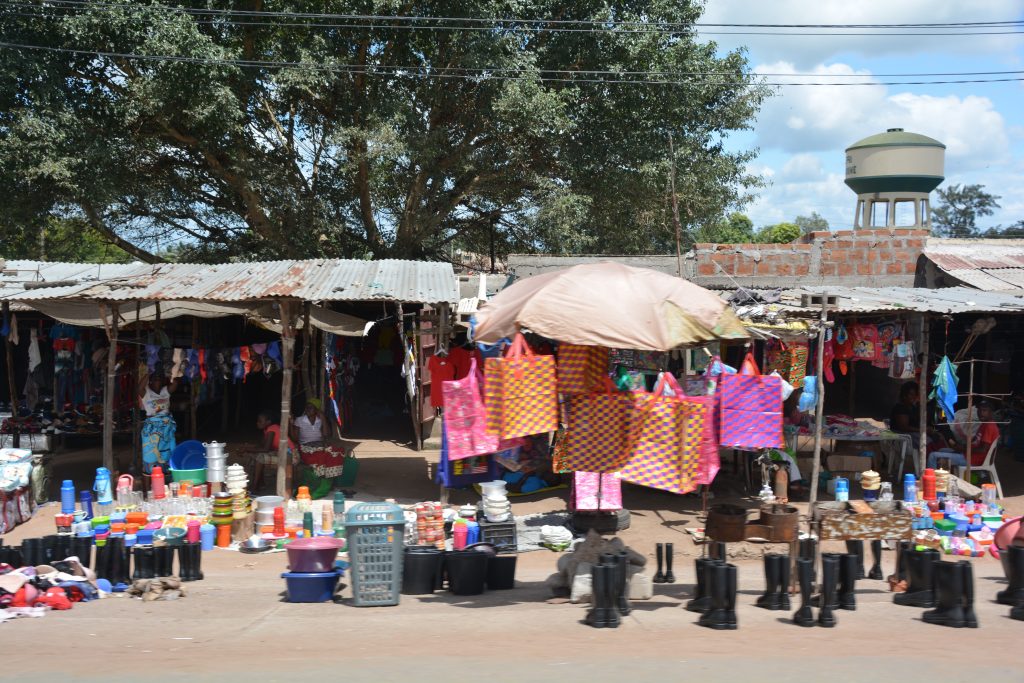
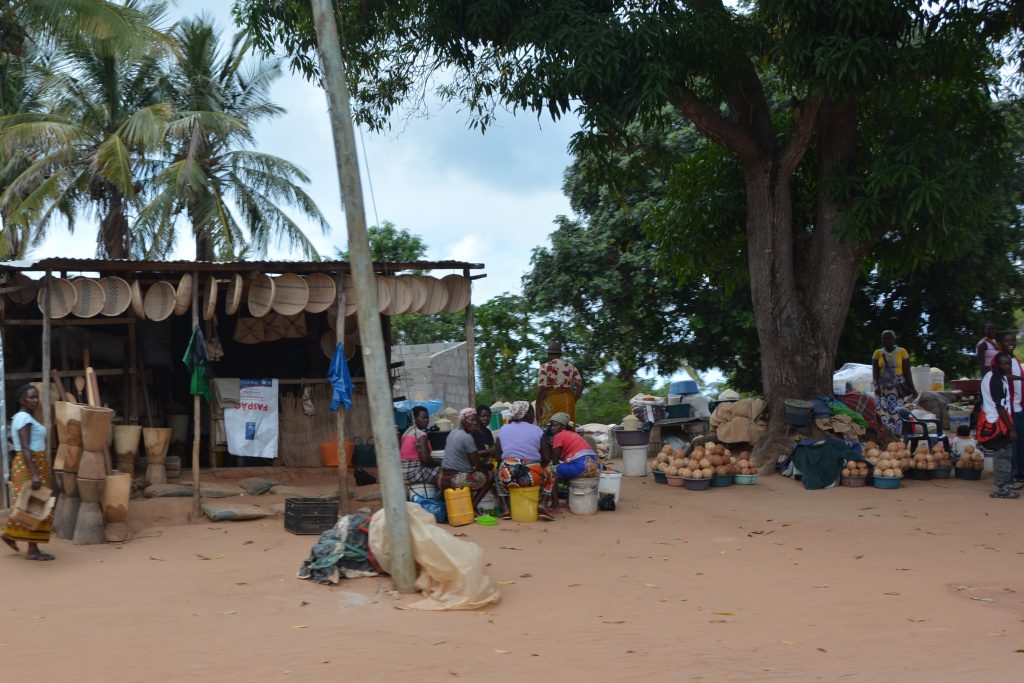
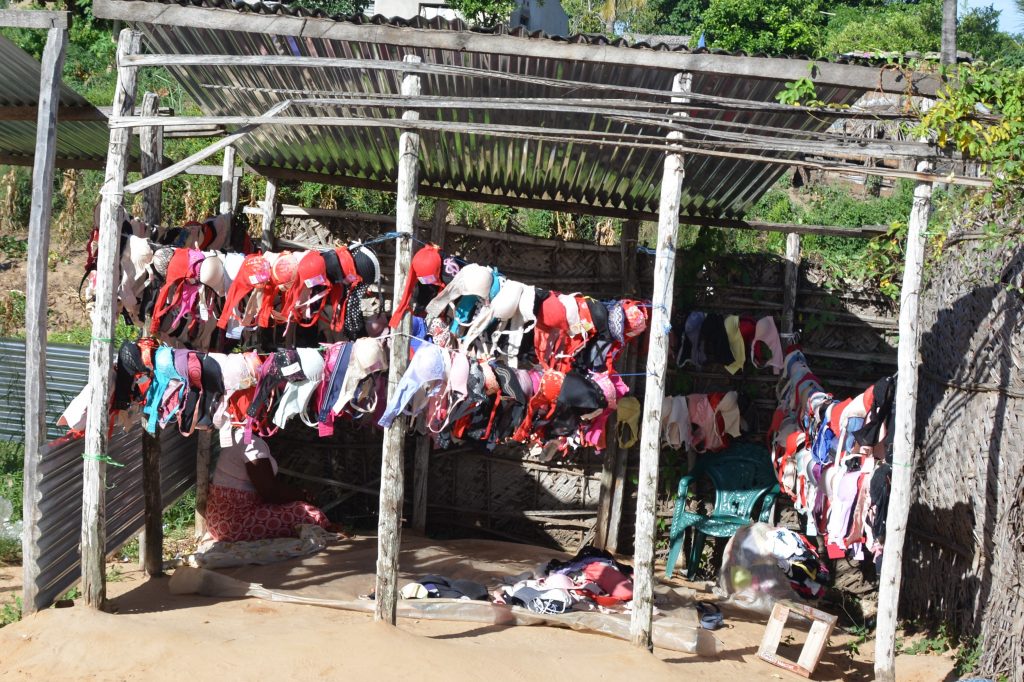
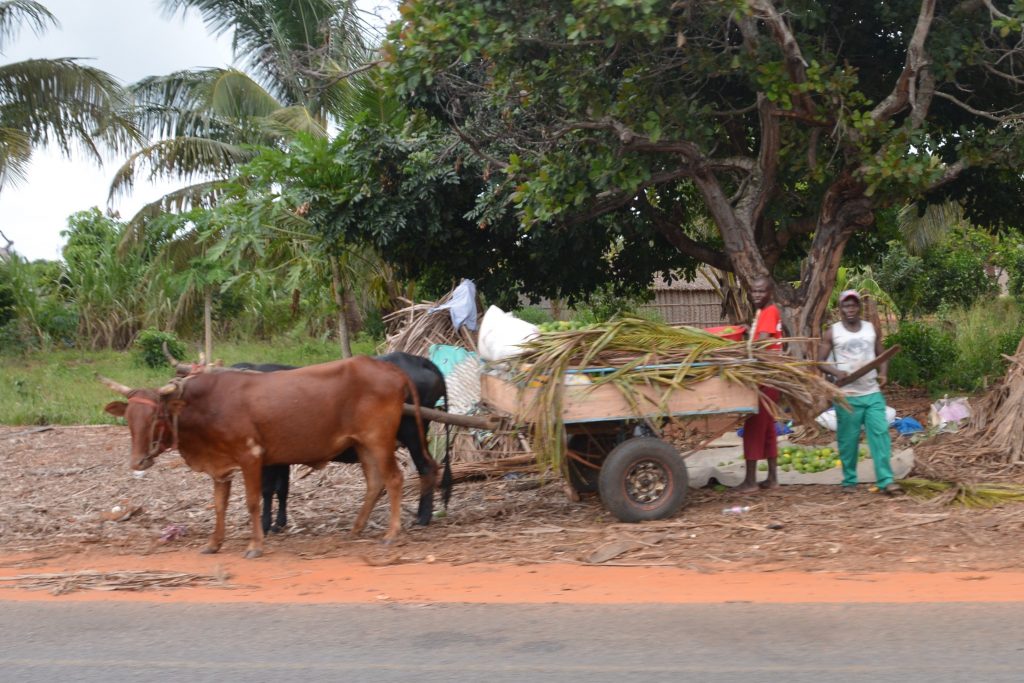
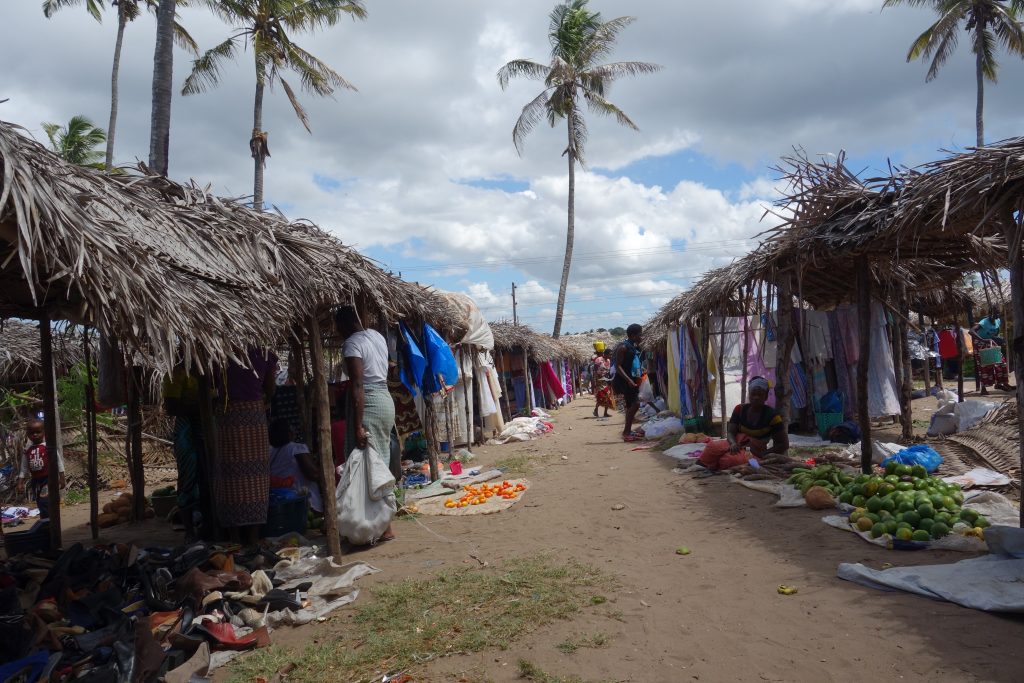
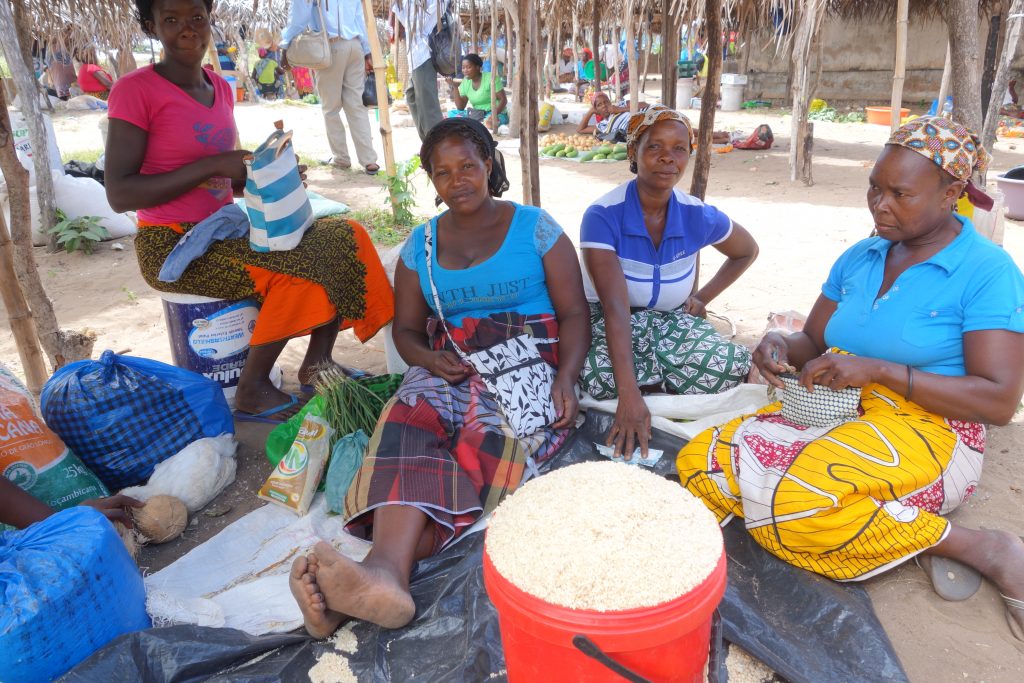
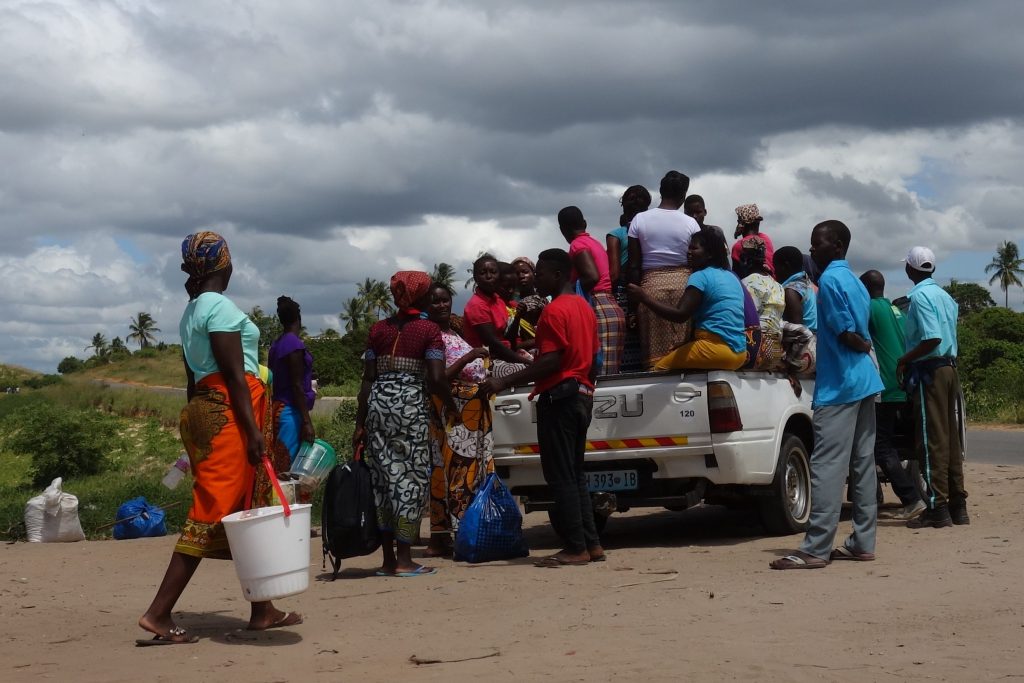
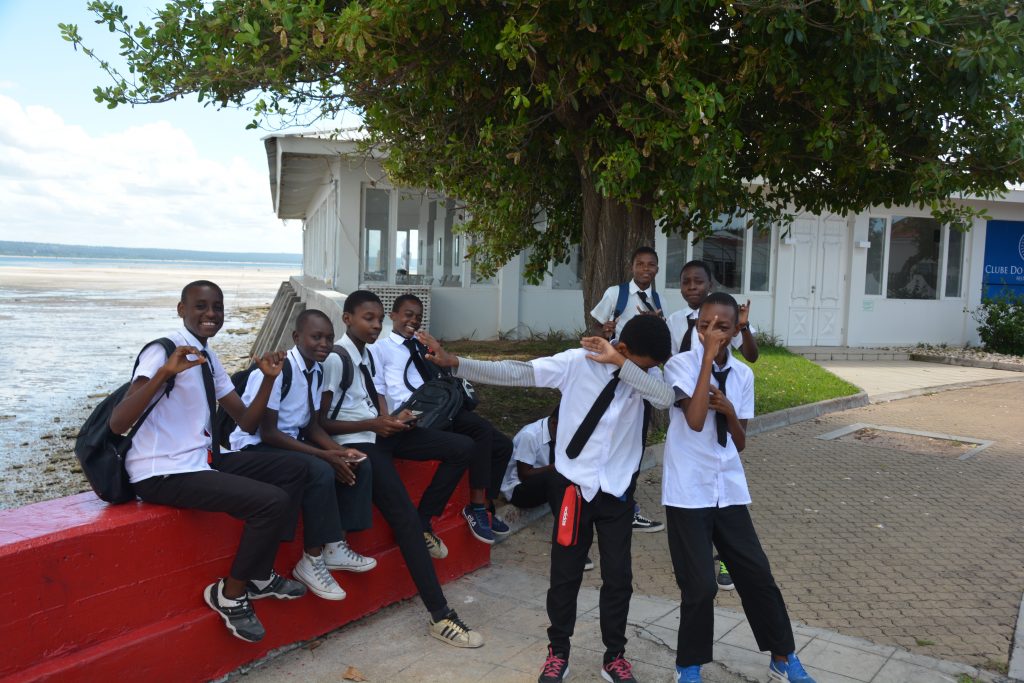
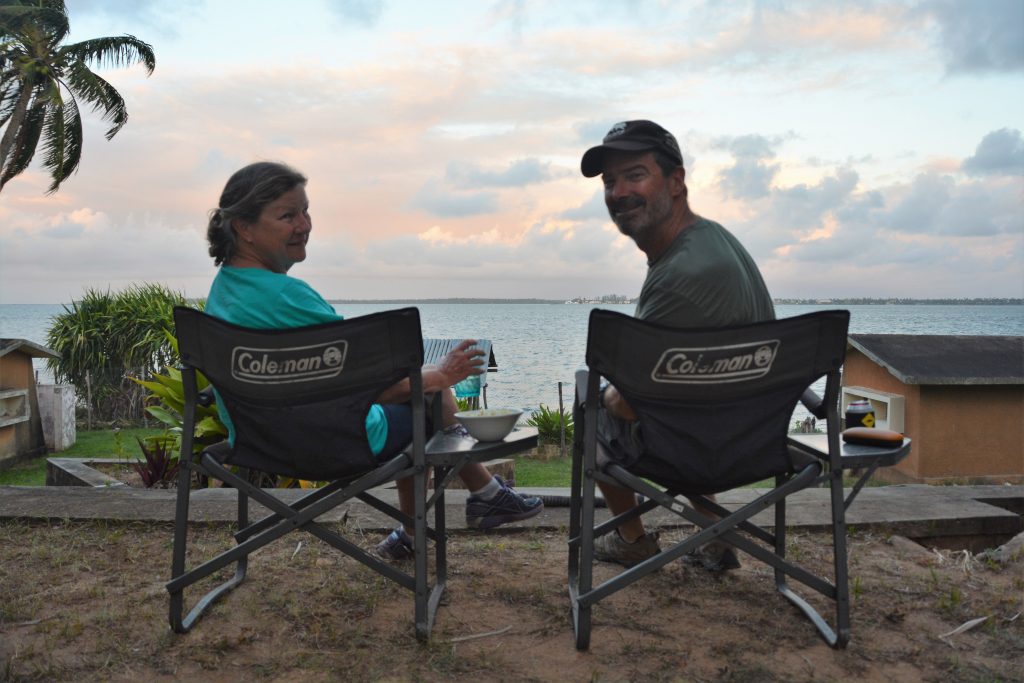
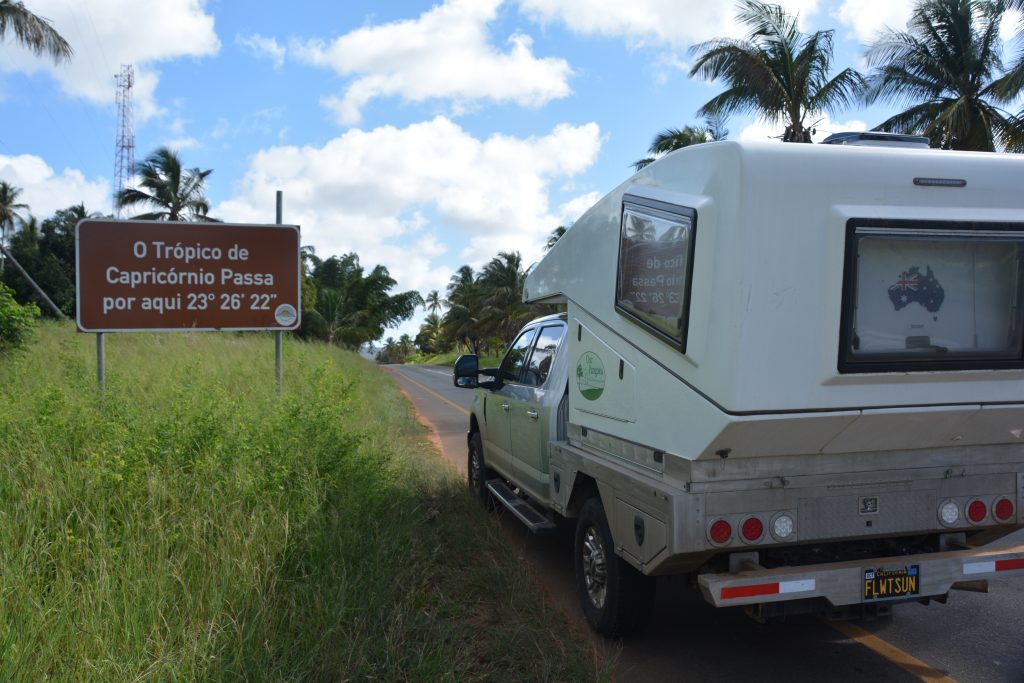
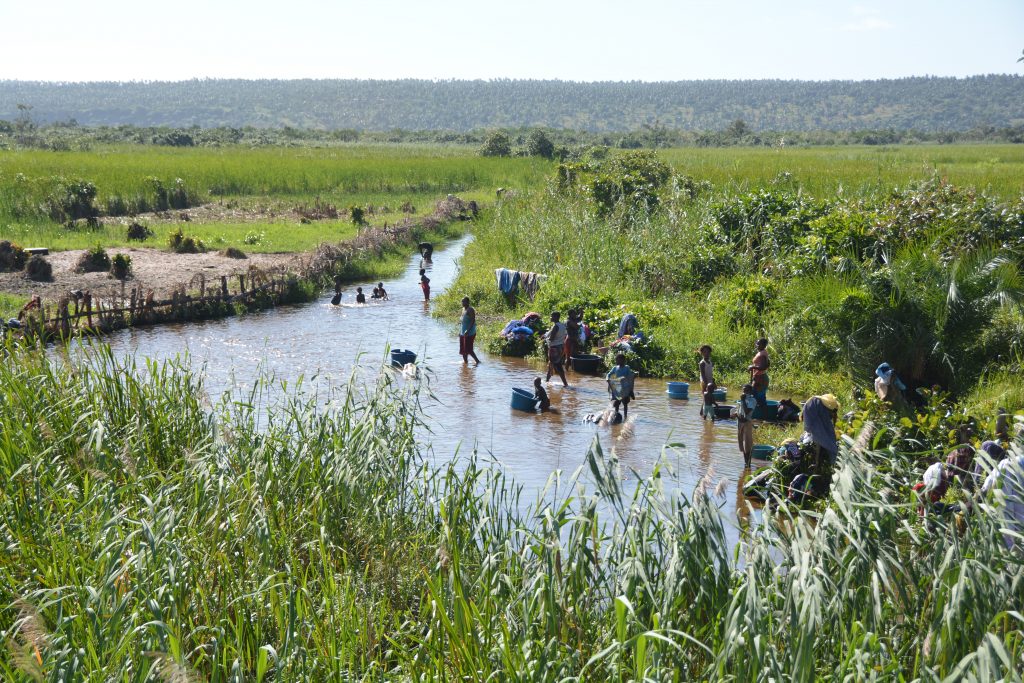
I believe your Grandma VanderStoep got Malaria when she was living in Iowa.
Go Figure!
Hi Linda, well, Iowa is a dangerous tropical place I guess!! I caught malaria when I was in my 20’s in a hospital in Aqaba Jordan, so you’re never safe anywhere!
Cheers,
Bill
Hasn’t Mozambique been on the new recently because of cyclones?
Hi Linda, good to hear from you. We just missed the horrible cyclone that hit the Mozambique coast but we’ve been worrying about how those poor communities have been hit. Very lucky for us to have missed it but absolutely tragic for them.
Cheers
Bill